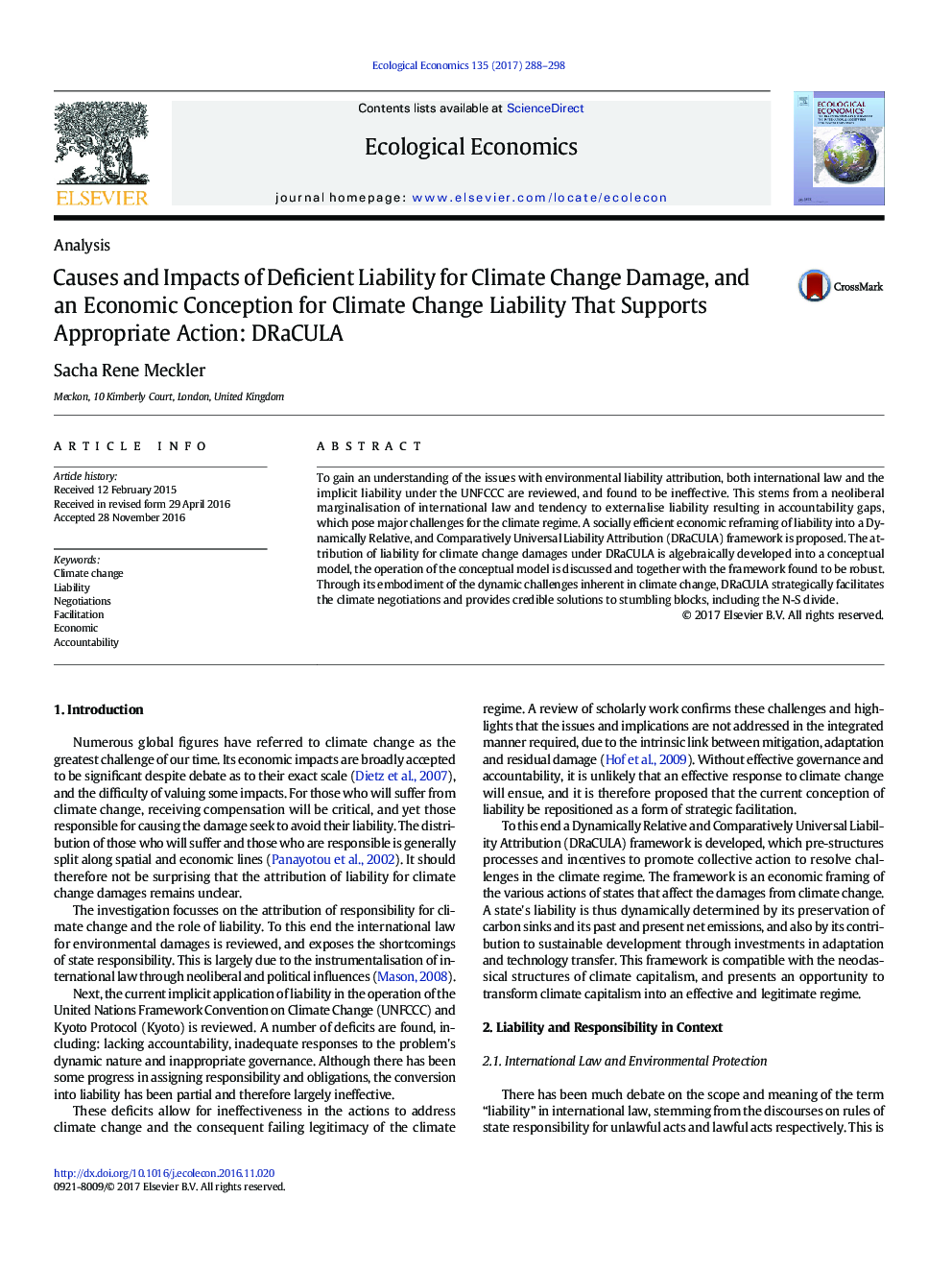| کد مقاله | کد نشریه | سال انتشار | مقاله انگلیسی | نسخه تمام متن |
|---|---|---|---|---|
| 5048786 | 1476344 | 2017 | 11 صفحه PDF | دانلود رایگان |

- Liability deficiencies exist through the instrumentalisation of international law.
- This allows the climate regime to be ineffective and lose legitimacy.
- Scholarly improvements do not sufficiently address accountability and dynamics.
- A treaty based economic framing of liability has the potential to resolve these issues.
- It is a robust framework facilitating negotiations and overcomes the N-S divide.
To gain an understanding of the issues with environmental liability attribution, both international law and the implicit liability under the UNFCCC are reviewed, and found to be ineffective. This stems from a neoliberal marginalisation of international law and tendency to externalise liability resulting in accountability gaps, which pose major challenges for the climate regime. A socially efficient economic reframing of liability into a Dynamically Relative, and Comparatively Universal Liability Attribution (DRaCULA) framework is proposed. The attribution of liability for climate change damages under DRaCULA is algebraically developed into a conceptual model, the operation of the conceptual model is discussed and together with the framework found to be robust. Through its embodiment of the dynamic challenges inherent in climate change, DRaCULA strategically facilitates the climate negotiations and provides credible solutions to stumbling blocks, including the N-S divide.
Journal: Ecological Economics - Volume 135, May 2017, Pages 288-298